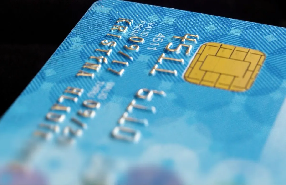RBL Bank Ltd. and Bajaj Finance Ltd. announced that they will stop the issuing of any new co-branded credit cards that were issued within a partnership with Bajaj Finance Ltd, while those cards issued till date will continue to operate as usual. This has resulted in the end of thier eight year-long partnership between the two companies. The news has resulted in the shares of RBL Bank Ltd. falling four percent while the shares of Bajaj Finance Ltd. fell by 1 percent.
Why The Decision To Split Has Been Taken?
The decision to end the partnership was taken because of a Reserve Bank of India direction that restricted the co-brand partners’ role in the Co-branded credit card ventures to only sourcing cards, and providing access to the cardholder for the goods/services offered. However, Reserve Bank of India prohibits the collection of dues, an activity, which Bajaj Finance has built capabilities on over the years, and has gained experience in which activity. Following the decision to split the RBL Bank shares tumbled four percent in the morning session, the shares of Bajaj Finance Ltd. similarly dropped by one percent.
What Amount Of Cards Issued Under Co-branding?
DBS Bank India had launched its credit card with a tie-up with Bajaj Finance Ltd. in June 2022. DBS Bank India currently has a credit card base of 5,00,000, most of which are issued as co-branded. After the circular was issued by the regulator RBI in April 2022, the entire collections part was moved back to the banks.
While RBL Bank has 51.74 lakh outstanding credit cards as of October 2024. Most of these were issued under its partnership with Bajaj Finance. The partnership that started off in 2016. RBL Bank says that in the past one and a half years, the bank has been working to reduce its reliance on a large co-branded partnership, in the credit card segment. The bank has a diverse range of co-branded credit card partnerships including with NBFCs such as Mahindra & Mahindra Finance, TVS Finance, as well as consumer brands like IOC and IRCTC.
What Will Be The Long Term Impact?
However, Morgan Stanley believes that the move could constrain RBL Bank’s potential credit card market share over the medium term and that this is a net negative for the medium-term earnings growth overall. Furthermore, the brokerage also said that the earnings outlook is tough, particularly due to challenges in the MFI Segment and as a result, while valuations at 0.6 times price-to-book are cheap, it does not look attractive overall. Morgan Stanley has an “underweight” rating on RBL Bank with a price target of ₹180.RBL Bank Ltd. and Bajaj Finance Ltd.
RBL Bank says it has significantly expanded its credit card issuance capabilities via direct channels as well as with new co-branded partnerships. However, lowered its dependence on the issuance of co-branded cards with Bajaj Finance over the last one year from 1.26 lakh card in the month of September 2023 to 37,000 cards issued in September 2024. Previously, over 60-70 per cent of card acquisitions were coming through Bajaj Finance. However, by Q2FY25, this had been reduced to 36 per cent, with the remainder of acquisitions coming organically.



